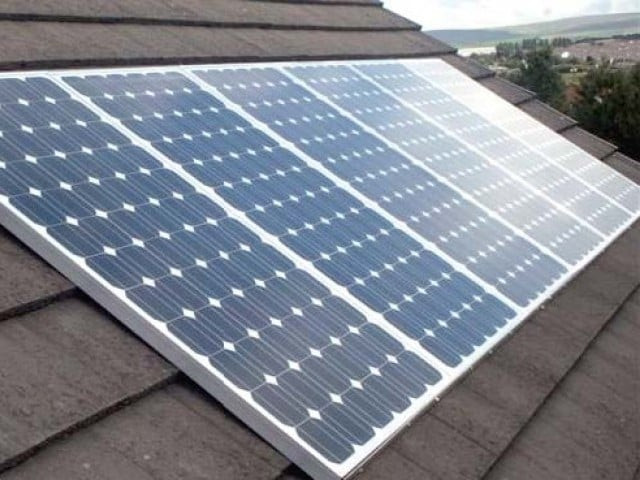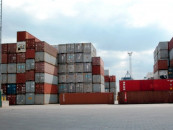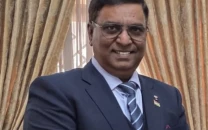Experts seek policy for solar manufacturing base
Study proposes roadmap for 100MW solar PV plant; stakeholders call for data-driven reforms, tech upgrades

Experts at a high-level consultative session stressed that Pakistan must urgently develop a comprehensive policy framework to strengthen its domestic solar manufacturing ecosystem amid rising energy demands and growing reliance on imports.
The session was hosted by the US-Pakistan Centre for Advanced Studies in Energy (USPCAS-E) at NUST.
The event marked the launch of a study titled "Crafting a Sustainable Business Model to Drive Indigenous Solar PV Panels Manufacturing in Pakistan," presented by Dr Nadia Shahzad, Associate Professor at NUST.
The study provides a roadmap for establishing a 100MW solar PV panel manufacturing plant in Pakistan, with scalability up to 1.0GW. Developed through site visits and stakeholder consultations, the model is seen as a practical starting point for local production.
Welcoming the participants, Dr Adeel Waqas, Dean and Principal at USPCAS-E, underscored the need for a self-reliant solar manufacturing sector to meet the country's energy needs and reduce import dependency.
The session brought together policymakers, academics, and industry leaders, all echoing the urgency to build a strong domestic solar base.
Maud Osman Mohammad of LONGi Solar praised the study's clarity and urged aligning policy with market realities.
Similarly, Muhammad Basit Ghauri from Renewables First noted that battery imports exceeding Rs90 billion in just three months reflect the market's potential. He emphasised the need for data-driven planning and integration of storage solutions behind the grid.
Dr Omais Abdur Rehman supported a role for the Engineering Development Board, while Dr Noor ul Huda Khan of BUITEMS advocated for alignment with next-gen solar technologies such as Perovskite modules.
On the technological front, Sohaib Asif Sipra, CEO of SkyElectric, warned that nearly half of Pakistan's solar installations remain informal, risking quality and safety standards. He called for the formation of a dedicated think tank to drive standardisation and innovation in battery and inverter manufacturing.
Representing local battery production, Mansoor Jamil Khan of Atlas Battery highlighted their joint venture with Japan's GS Yuasa and advocated for lithium-ion safety protocols alongside continued dominance of lead-acid batteries.
Policy-level recommendations were reinforced by M Umer Khan of the Private Power and Infrastructure Board (PPIB), who proposed targeted subsidies and strategic import duties to promote indigenous manufacturing.
Hasnat Khan of the Pakistan Solar Association detailed their training and certification drive in partnership with institutions like TEVTA, NUTECH, and PPIB to ensure quality assurance in solar installations.
Concluding the event, Dr Majid Ali, Associate Professor at NUST, reaffirmed the university's commitment to advancing indigenous solar manufacturing and called for ongoing collaboration among academia, industry, and government.
The session served as a powerful reminder of the need for cohesive action and strategic investment to transform Pakistan into a hub of solar innovation and manufacturing.






















COMMENTS
Comments are moderated and generally will be posted if they are on-topic and not abusive.
For more information, please see our Comments FAQ